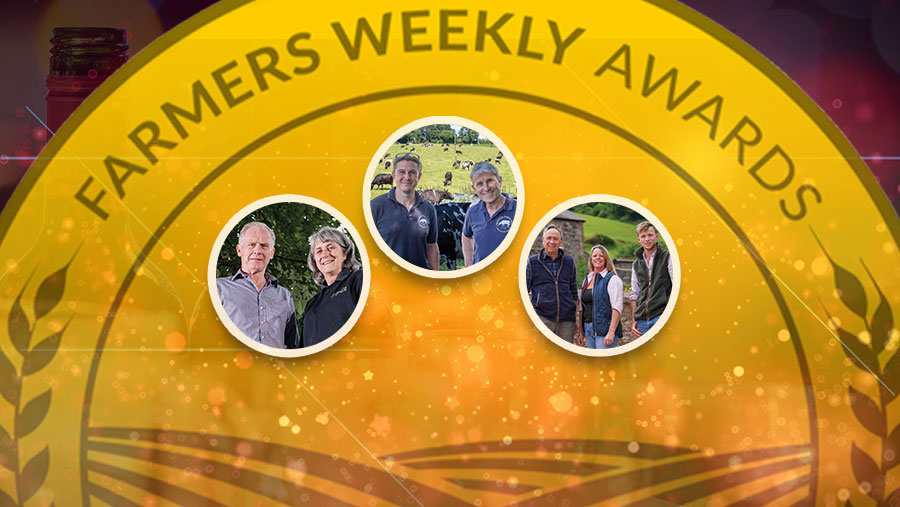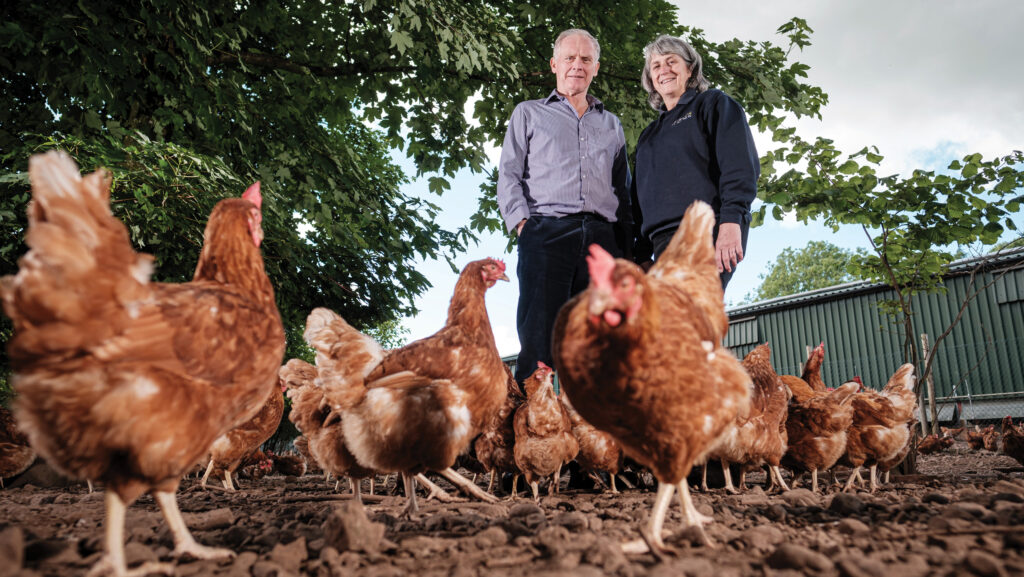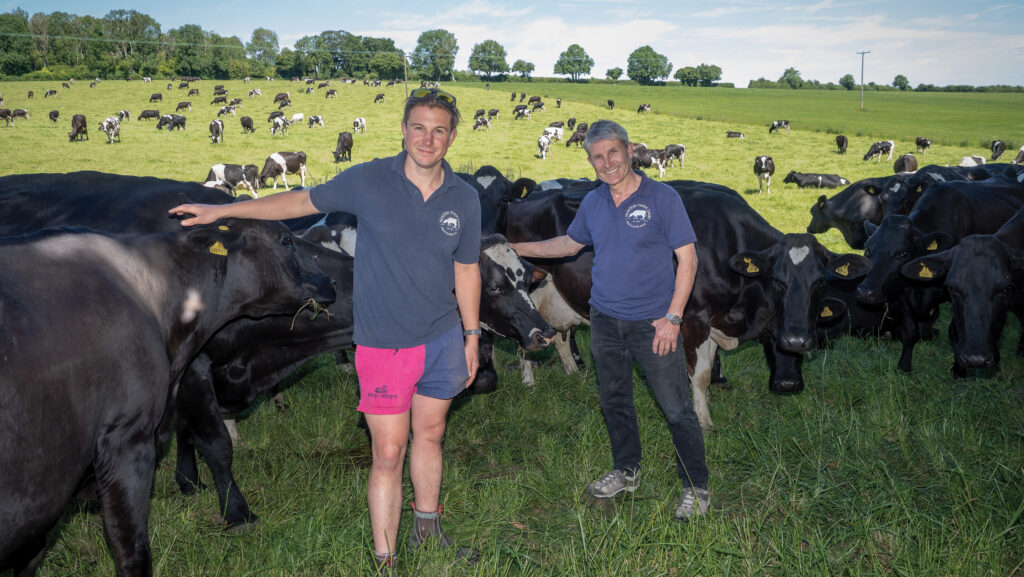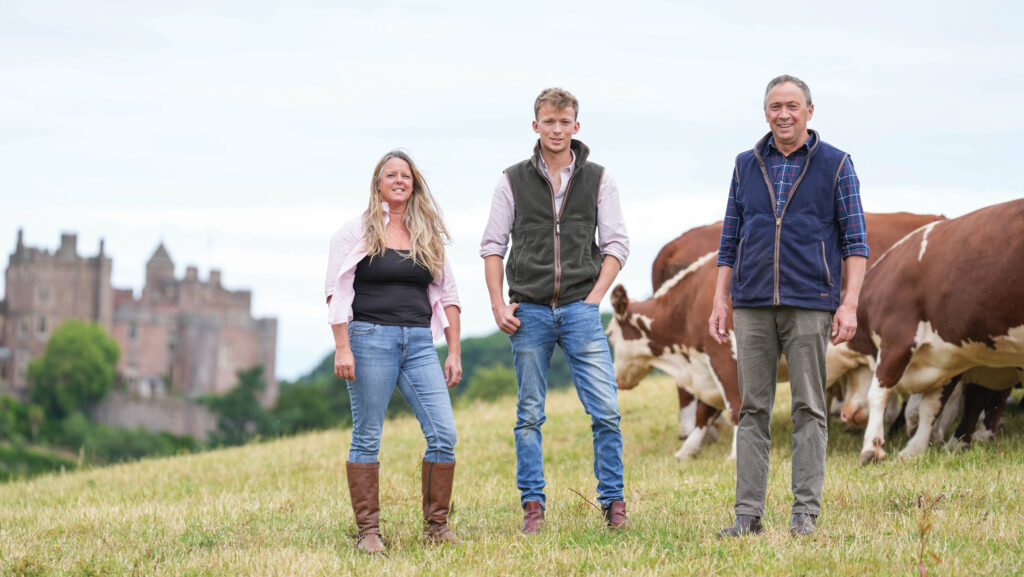Farmers Weekly Awards 2024: Environmental Champion of the Year finalists

From tree planting and cutting carbon to reducing inputs and supporting rare species, our three Environmental Champion finalists are promoting biodiversity across their businesses.
See also: Farmers Weekly Awards 2024: The shortlist revealed
The finalists
- David and Helen Brass, The Lakes Free Range Egg Company, Cumbria
Poultry Farmer of the Year finalist - Simon and John Martin, Nunton Farm, Wiltshire
Dairy Farmer of the Year finalist - Andrew, Tracey and Robert Speed, Briddicott Farm, Somerset
Mixed Farmer of the Year finalist
The judges
- Poultry Farmer of the Year
Nigel Edwards, 2023 Poultry Farmer of the Year; Kerry Maxwell, independent judge and British Poultry Council communications manager; Philip Clarke, Farmers Weekly news editor - Mixed Farmer of the Year
Craig and Claire Grant, 2023 Mixed Farmers of the Year; Andrew Robinson, independent judge and head of agriculture, Armstrong Watson; Emma Gillbard, FW deputy arable editor - Dairy Farmer of the Year
William Baillie, 2023 Dairy Farmer of the Year; Gaynor Wellwood, independent judge, dairy business consultant and dairy farmer; Shirley Macmillan, Farmers Weekly deputy livestock editor
The judging criteria
The winner in this category – which comprises finalists from the main FW Awards categories – will be the finalist who is judged to have made the most positive impact on the wider environment and the sustainability of their farming activities.
That could mean improving soil, water and air quality, reducing the use of pesticides, increasing biodiversity or lowering greenhouse gas emissions – perhaps by cutting fuel use or introducing renewables, for example.
Crucially, these practices will be part of an overall strategy that is helping to secure the future of the farm business, both ecologically and financially, for the next generation.
The judges considered the scale of each finalist’s environmental ambitions, and the degree of innovation involved.
They also looked at how ideas have been embedded into farm management practices, the effect of these actions, and what is being done to measure and monitor results.
David and Helen Brass, The Lakes Free Range Egg Company, Cumbria

© Jim Varney
“Environmental delivery” is a concept that has driven David and Helen Brass long before it became common parlance in the corridors of Westminster.
Tree planting has been a major part of this, going back 30 years to when they first started working with McDonald’s and the Farm Animal Initiative to develop a system of range enrichment that has become an industry standard,
As well as 25% tree coverage on their own farms, sequestering carbon and encouraging birds to range, contracted egg producers have also planted more than 250,000 trees.
David is a Woodland Trust ambassador and shares his experience nationally.
Their own farm is also becoming a demonstration site as part of a pan-European decarbonisation initiative.
David is also working with the UK Centre for Ecology and Hydrology to research the use of trees for ammonia absorption near poultry sheds.
It’s not just trees, however. David and Helen have developed their own “biodiversity action plan”.
They have made this a requirement for their contracted farmers too, paying for an ecologist to measure the baseline and help devise a strategy for each holding.
Barn owls, bats, red-listed birds, rare plants and insects all thrive as a consequence.
There is also a real emphasis on renewable energy, with biomass-fuelled underfloor heating in pullet rearing sheds to cut fossil fuels and reduce feed intake.
The egg packing station is a testament to environmental commitment, with solar panels galore, battery storage, ground-source heat pumps, movement sensitive lighting, and rainwater harvesting all part of the effort to limit resource use.
David sits on many industry committees, where environmental delivery is a constant mantra.
What the judges say
“The commitment David and Helen Brass have shown to environmental improvement is exemplary – both on their own laying farms and for other producers contracted to supply their egg packing station. How nature benefits is clear to see.”
Simon and John Martin, Nunton Farm, Wiltshire

© Kathy Horniblow
Inheriting a 70-year-old site of special scientific interest (SSSI) is a big responsibility.
While most Wiltshire landowners no longer maintain traditional water meadows, dairy farmers Simon and John Martin rely on them for youngstock grazing.
Regularly “drowning” chalkland meadows was a big agricultural innovation of the 1600s.
Water was diverted from the River Avon through a series of channels to encourage early grass growth, allowing for greater sheep numbers and even a second hay crop.
Today, this father and son team maintain ditches, weirs and hatches on 16ha of their dairy farm.
Each meadow is about 3ha and rotationally grazed by youngstock every seven-to-10 days, then topped. There is no reseeding.
Tagged barn owls have been tracked on the farm and shown to favour the meadows as a hunting ground.
John says this grassland, rich in species, has never seen a plough, sprayer or bag of fertiliser and has 18% organic matter. This compares with 8.5% on the milking platform and 3.5% on former arable fields.
However, the meadows are part of a business that is building resilience into everyday farming.
John is drilling herbal leys for drought-resistant summer grazing, and rainwater from shed roofs is UV-treated for cattle drinking and washing down the parlour.
Roof-mounted 30kW solar panels heat water for milking plant washing – not just a feed-in tariff, says Simon.
The Martins have been in the Allenford Farmer Cluster Group, run by the Game and Wildlife Conservation Trust (GWCT), for three years. Their farm habitats now join 7,500ha, allowing wildlife to move between farms.
As part of the GWCT’s Environmental Farmers Group, they completed a biodiversity audit across each square kilometre to set their farm’s baseline in 2023.
The group is investigating ways to trade as a single hub to offset carbon and phosphorus. Simon and John are also investigating potential payments for their care of the SSSI, and are part of an SFI pilot scheme.
Having built a good relationship with their local community – one of their five vending machines is outside the village pub – the Martins regularly tell their farming and environmental story to the consumer.
What the judges say
“Simon and John are more advanced than most with their rainwater harvesting, solar panels and barn owl boxes. But they have also adapted grazing management to mitigate the impact of drought.
Progressive in their thinking and enthusiastic about getting it right, they are a good example to others about what can be done.”
Andrew, Tracey and Robert Speed, Briddicott Farm, Somerset

© Emily Fleur
Strategically managing the environment and promoting biodiversity is a top priority for the Speed family, who run a mixed beef, sheep and arable farm on the edge of Exmoor, Somerset.
Andrew and Tracey, together with son Robert, have dedicated more than 50% of the 1,000ha farm, which rises from sea level to 366m moorland, to environmental schemes.
Whether it’s legume mixes or parkland recreation, native breeds or reducing chemical use, each enterprise is precisely matched to the varying environmental landscape.
In fact, 300ha of land is classified as lowland heathland, of which 120ha is nestled in the ancient Dunster deer parks.
Andrew manages a large and complex Higher Tier Countryside Stewardship scheme, which includes 270ha of land in a site of special scientific interest.
The family are at present embarking on a new Higher Tier scheme to restore the parks back to their natural glory, working closely with Natural England.
He has a real passion for boosting biodiversity, particularly native plant species and beneficial insect populations.
One of his main aims is to increase abundance of the rare heath fritillary butterfly that is restricted to a few key habitats – primarily sheltered heathland.
By strategically managing the heathland with indigenous livestock species he is helping to promote native Exmoor moorland plants such as heather, whortleberry and common cow wheat.
These in turn, provide optimum habitats for endangered insects.
In addition to beef and sheep enterprises, the family also run 150 Exmoor Horn ewes, 30 Exmoor ponies, 170 red and fallow deer, and a herd of Red Devon cattle across the heathland to naturally control gorse, brambles, ragwort and bracken.
This enables soils to regenerate and wildflowers to regrow so that the landscape can be a place for all to enjoy.
What the judges say
“The family’s passion for the environment and restoring native heathland is inspiring, and their knowledge of the local area and strategic ability to match enterprises to specific landscapes is impressive.
The Speeds are true custodians of the land.”
The Farmers Weekly Environmental Champion of the Year is sponsored by Environment Bank

“We have been working alongside farmers to help them improve environmental and commercial resilience by restoring nature on their land and we are proud to celebrate these fantastic finalists who champion the environment in their farming businesses.”
